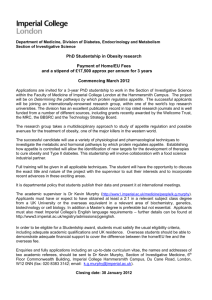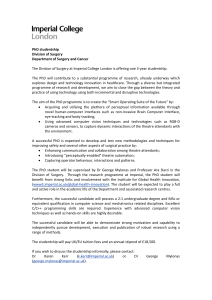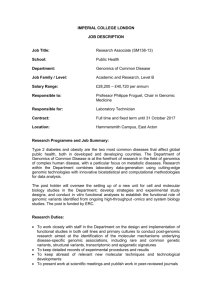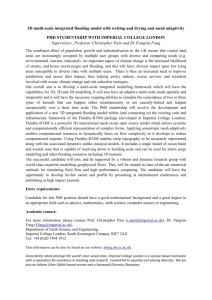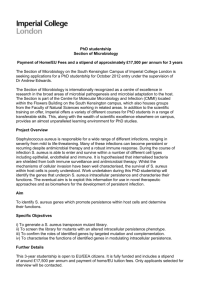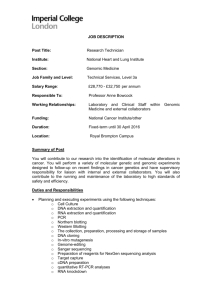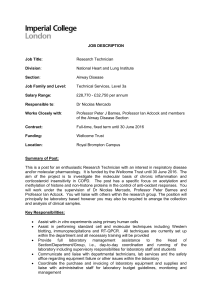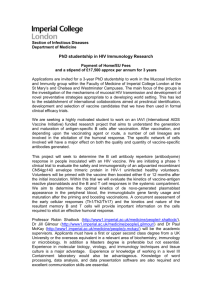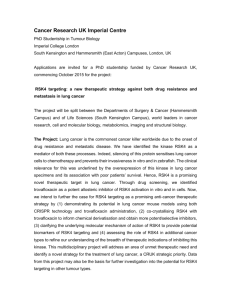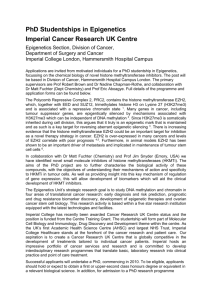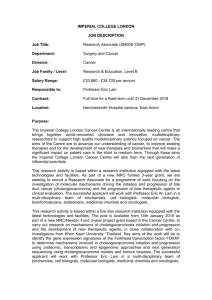PhD Studentship in Cancer Biology at Imperial College London
advertisement
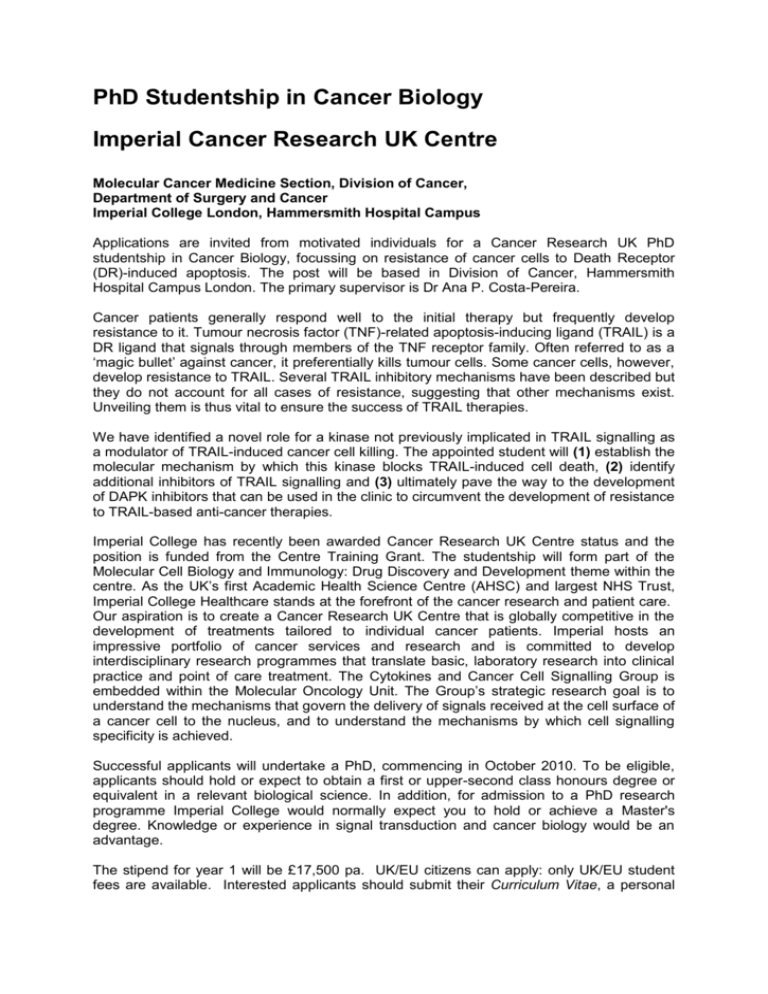
PhD Studentship in Cancer Biology Imperial Cancer Research UK Centre Molecular Cancer Medicine Section, Division of Cancer, Department of Surgery and Cancer Imperial College London, Hammersmith Hospital Campus Applications are invited from motivated individuals for a Cancer Research UK PhD studentship in Cancer Biology, focussing on resistance of cancer cells to Death Receptor (DR)-induced apoptosis. The post will be based in Division of Cancer, Hammersmith Hospital Campus London. The primary supervisor is Dr Ana P. Costa-Pereira. Cancer patients generally respond well to the initial therapy but frequently develop resistance to it. Tumour necrosis factor (TNF)-related apoptosis-inducing ligand (TRAIL) is a DR ligand that signals through members of the TNF receptor family. Often referred to as a ‘magic bullet’ against cancer, it preferentially kills tumour cells. Some cancer cells, however, develop resistance to TRAIL. Several TRAIL inhibitory mechanisms have been described but they do not account for all cases of resistance, suggesting that other mechanisms exist. Unveiling them is thus vital to ensure the success of TRAIL therapies. We have identified a novel role for a kinase not previously implicated in TRAIL signalling as a modulator of TRAIL-induced cancer cell killing. The appointed student will (1) establish the molecular mechanism by which this kinase blocks TRAIL-induced cell death, (2) identify additional inhibitors of TRAIL signalling and (3) ultimately pave the way to the development of DAPK inhibitors that can be used in the clinic to circumvent the development of resistance to TRAIL-based anti-cancer therapies. Imperial College has recently been awarded Cancer Research UK Centre status and the position is funded from the Centre Training Grant. The studentship will form part of the Molecular Cell Biology and Immunology: Drug Discovery and Development theme within the centre. As the UK’s first Academic Health Science Centre (AHSC) and largest NHS Trust, Imperial College Healthcare stands at the forefront of the cancer research and patient care. Our aspiration is to create a Cancer Research UK Centre that is globally competitive in the development of treatments tailored to individual cancer patients. Imperial hosts an impressive portfolio of cancer services and research and is committed to develop interdisciplinary research programmes that translate basic, laboratory research into clinical practice and point of care treatment. The Cytokines and Cancer Cell Signalling Group is embedded within the Molecular Oncology Unit. The Group’s strategic research goal is to understand the mechanisms that govern the delivery of signals received at the cell surface of a cancer cell to the nucleus, and to understand the mechanisms by which cell signalling specificity is achieved. Successful applicants will undertake a PhD, commencing in October 2010. To be eligible, applicants should hold or expect to obtain a first or upper-second class honours degree or equivalent in a relevant biological science. In addition, for admission to a PhD research programme Imperial College would normally expect you to hold or achieve a Master's degree. Knowledge or experience in signal transduction and cancer biology would be an advantage. The stipend for year 1 will be £17,500 pa. UK/EU citizens can apply: only UK/EU student fees are available. Interested applicants should submit their Curriculum Vitae, a personal statement and names of two referees. For further information (and submission of CV etc), please contact Dr Ana Costa-Pereira: a.costa-pereira@imperial.ac.uk Closing Date: 31st August 2010

